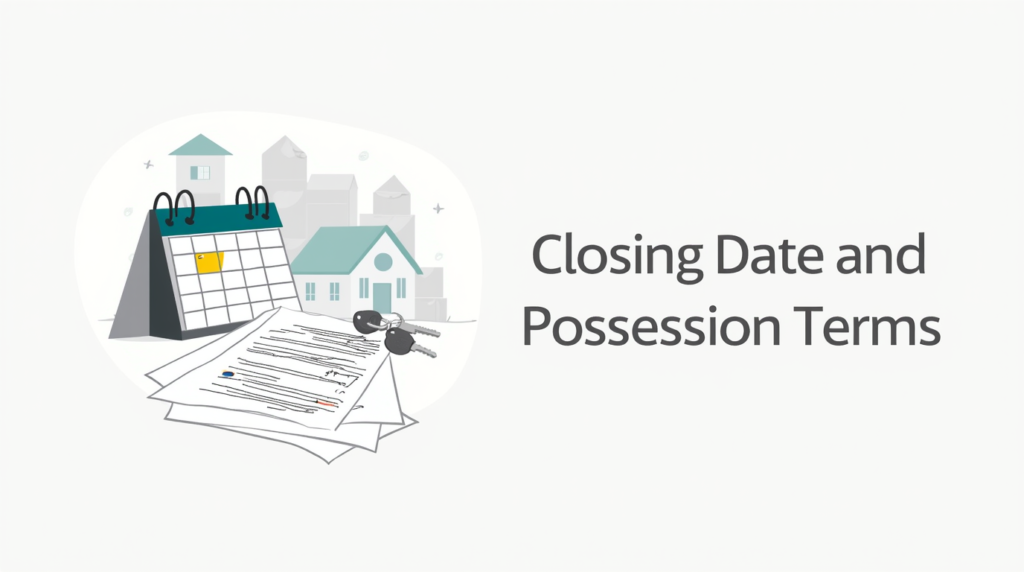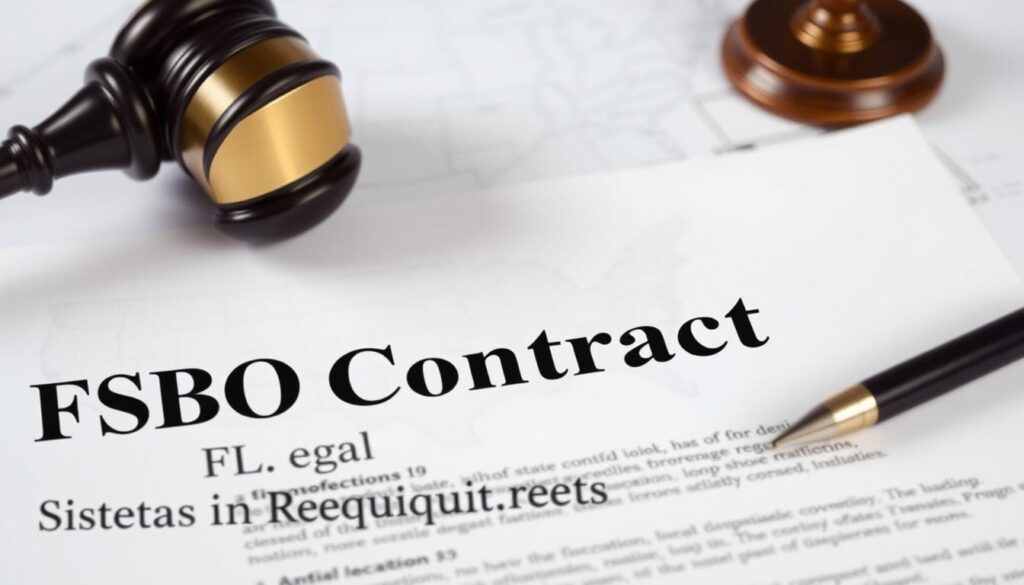Selling your home without a real estate agent can feel like navigating uncharted waters. The thought of managing a Real Estate For Sale By Owner Contracts might seem overwhelming. But with the right knowledge, you can save thousands in commissions and take control of your property sale.
A Real Estate For Sale By Owner Contracts is more than just a piece of paper. It’s your roadmap to a successful property transaction. By understanding the intricacies of an owner listing agreement, you’ll protect your interests and streamline the selling process.
Imagine walking away from your home sale with extra money in your pocket. By avoiding traditional real estate agent commissions, which can range from 5% to 6% of the sale price, you could potentially save up to $18,000 on a $300,000 home sale.
Table of Contents
Understanding FSBO Real Estate Transactions

For sale by owner paperwork can be tough for homeowners selling on their own. In 2023, FSBO sales made up 7% of all home sales. This shows more sellers are choosing not to use traditional real estate agents.
Selling a home without an agent means dealing with legal and financial details. The big plus is saving a lot on commission fees.
Key Benefits of Selling Without an Agent
- Potential savings of up to $25,000 in commission fees
- Complete control over the selling process
- Direct communication with potential buyers
- Flexibility in pricing and negotiation strategies
Legal Requirements for FSBO Sales
Understanding the fsbo contract is key. Sellers need to know state laws. They must prepare:
- Accurate property description
- Detailed sales agreement
- Necessary disclosure documents
- Compliance with local real estate laws
Common Challenges in FSBO Transactions
FSBO sales are attractive but come with challenges. Sellers often face:
- Accurately pricing the property
- Marketing effectively
- Negotiating complex terms
- Understanding legal documentation
“Selling your home independently requires preparation, research, and attention to detail.” – Real Estate Expert
To do well in a for sale by owner sale, sellers need to put in time. They must learn about the local market and might need to get help from real estate pros. This ensures a smooth sale.
Essential Components of a Real Estate For Sale By Owner Contracts
Creating a detailed owner sale contract is crucial. It’s the backbone of a successful real estate deal. Knowing the key parts helps avoid legal issues for both sides.
A good FSBO contract has several important parts:
- Precise property identification
- Clear purchase price terms
- Payment method specifications
- Contingency clauses
- Legal descriptions of the property
Experts say clarity is key in your contract. In Ohio, about 10% of sellers face challenges with complex FSBO contracts. This is due to strict legal rules.
| Contract Component | Critical Details |
|---|---|
| Property Description | 100% of contracts must include detailed property identification |
| Contingencies | 70% of transactions include specific contingency clauses |
| Earnest Money | Typically 1-3% of purchase price |
Consider getting a real estate attorney’s help. In Ohio, they charge $150 to $500 an hour for contract checks. This ensures your contract is legal.
A well-made contract protects both sides and reduces disputes.
Include these key contingencies in your contract:
- Property replacement timeline
- Current home sale protection
- Appraisal verification
- Financing conditions
Remember, 100% of real estate contracts need clear offer and acceptance. Both parties must sign to make it legal.
Property Description and Sale Price Details
Creating a detailed home seller contract is key. It needs to cover property details and financial info. This is crucial for a successful For Sale By Owner (FSBO) deal. It ensures both the seller and buyer are protected.
When making your house seller contract, be precise. You must write a property description that’s clear and legally sound. This avoids any confusion.
Legal Property Description Requirements
Your home seller contract must have a solid property description. It should include:
- Complete legal property address
- Parcel identification number
- Precise property boundaries
- Total square footage
- Zoning classification
Price Terms and Payment Methods
Your contract must clearly state the financial terms of the sale. Mention the total price, payment options, and any conditions.
Payment options can be:
- Cash payment
- Conventional mortgage
- FHA loan
- VA loan
- Owner financing
Earnest Money Specifications
Earnest money shows the buyer’s serious intent. It’s usually 1-3% of the sale price. Your contract should outline:
- Earnest money amount
- Payment timeline
- Conditions for refund
- Deposit holding institution
Pro tip: Get advice from a local real estate attorney. They can make sure your contract follows state laws.
Contract Parties and Legal Representations
When you’re selling a home, knowing who to list as parties is key. Your contract must have the right legal details for a smooth sale. Experts with 38 years of experience say it’s important to write down each party’s info carefully to avoid legal issues.
Here are some important things to consider for contract parties:
- Full legal names matching official records
- Current contact information for all parties
- Verification of property ownership
- Clear indication of legal capacity to sell
Accuracy is paramount in real estate transactions. Your contract should clearly show if you’re selling as an individual, joint owner, or through a legal entity. Buyers need to know you can legally sell the property.
“Precise party identification prevents future legal disputes” – Real Estate Legal Expert
With 657 completed transactions averaging $347,000, experts stress the need for clear legal details. Even if you’re not represented, both sides must understand their legal duties and rights.
Make sure your contract includes:
- Seller’s full legal name
- Buyer’s complete contact information
- Proof of ownership documentation
- Statements of legal capability
By carefully listing contract parties, you protect yourself and set up a strong base for a successful home sale.
Purchase Terms and Financial Arrangements
Creating a solid Real Estate For Sale By Owner Contracts needs focus on financial details. The financial parts are key to your deal, making sure both sides know their money roles.
When making your owner listing agreement, you must cover several key financial points:
Down Payment Requirements
Down payments show the buyer’s serious intent. They usually are 1% to 3% of the sale price. This payment is a promise and a safety net for the seller.
- Specify exact down payment amount
- Define acceptable payment methods
- Establish clear deposit deadlines
Financing Contingencies
Getting mortgage approval is key in most deals. About 90% of buyers get mortgages. So, financing clauses are vital in your contract.
“A well-crafted financing contingency protects both parties from potential funding complications.”
- Set a specific timeframe for loan approval (typically 30-45 days)
- Outline conditions for contract termination
- Define consequences if financing falls through
Closing Cost Allocations
Closing costs can vary and affect the deal’s outcome. It’s important for buyers and sellers to clearly agree on who pays what in the contract.
Make a detailed list of expected closing costs. Include legal fees, title insurance, and other costs. This helps avoid confusion and makes the transfer smoother.
Property Inspection and Due Diligence

When selling a property yourself, getting it inspected is key. Your FSBO contract must protect both sides. It should cover all the necessary steps for a fair sale.
Buyers usually have 7 to 14 days to inspect the property. This time lets them check for any problems that could affect the sale.
Standard Inspection Components
- General property inspection
- Underground oil tank search
- Radon testing
- Sewer scope evaluation
- Wood destroying insects inspection
- Septic and water well testing
Your fsbo contract should have clauses for inspection results. Buyers can cancel or ask for changes based on what inspectors find.
Inspection Negotiation Strategies
| Buyer Options | Seller Responses |
|---|---|
| Cancel Contract | Offer Repairs |
| Request Price Reduction | Provide Financial Credit |
| Demand Specific Repairs | Negotiate Repair Scope |
When talking about repairs, make sure they’re done by licensed and insured contractors. You’ll need proof of the work and any needed permits to keep everyone safe.
Comprehensive inspections can save significant unexpected repair costs in the future.
Both smart buyers and sellers know that detailed inspections avoid future problems. They make the sale process smoother.
Title Search and Insurance Requirements
When you sell private property, knowing about title search and insurance is key. These steps protect both sides from legal issues that could harm ownership.
A title search usually takes 10 to 14 days. It checks the property’s past ownership. This is vital to find any problems that might stop the sale.
Selecting a Title Company
Choosing a good title company is important. Look for ones that:
- Do deep research on the property’s history
- Finding any ownership issues
- Offer full insurance
- Check the property’s legal details
Types of Title Insurance Coverage
There are two main types of title insurance:
- Owner’s Policy: Protects the buyer’s rights
- Lender’s Policy: Protects the lender’s money
Clear Title Obligations
Sellers must clear any title issues before selling. Common problems include:
- Unpaid property taxes
- Unresolved liens
- Wrong legal descriptions
- Disputes over ownership
The cost of a title search is $75 to $200. It’s a small price to pay to avoid legal troubles later.
Closing Date and Possession Terms
When you make a house seller contract, it’s key to set clear closing and possession terms. The time to close on a house with a mortgage is usually 44 days. But, this can change based on many factors.

- Establishing a realistic closing date
- Defining precise possession transfer terms
- Addressing potential contingency delays
Important timing for your house seller contract should include:
- Mortgage financing contingencies
- Property inspection windows
- Potential appraisal challenges
There are many ways closing can go wrong:
| Closing Challenge | Potential Impact |
|---|---|
| Low home appraisal | May require price renegotiation |
| Financing issues | Could delay or cancel transaction |
| Title complications | Might prevent property transfer |
Pro tip: Always include flexible language in your home seller contract. This helps protect your interests. Buyers get a Closing Disclosure about three days before closing. This ensures they’re ready and informed.
A well-drafted closing and possession section can prevent misunderstandings and legal complications during your real estate transaction.
Sellers should outline early possession agreements clearly. Include details about rent, utilities, insurance, and liability waivers. This helps reduce risks during the transition.
Default Provisions and Dispute Resolution
When selling a home, knowing how to handle problems is key. An unrepresented seller needs strong protection in their contract. This helps avoid legal issues.
Real estate deals can face challenges. About 20% of them hit a snag. So, it’s vital to have clear rules for handling problems.
Breach of Contract Remedies
If a contract is broken, sellers have options:
- Keep the earnest money deposit (usually 1-3% of the home’s value)
- Go to court for damages
- Ask the court to enforce the contract
- Put the home back on the market
“Clear contract provisions can reduce misunderstandings and potential legal conflicts.” – Real Estate Legal Expert
Mediation and Arbitration Clauses
There are ways to solve disputes without going to court. Mediation and arbitration are two:
- Mediation can cut costs by half
- Arbitration is quicker
- They both mean less court time
- They’re often cheaper than going to court
Negotiated solutions are possible in about 30% of disputes. This shows how important clear talks and well-written contracts are.
State-Specific Legal Requirements

Creating a Real Estate For Sale By Owner Contracts is complex. Each state has its own rules that can affect your agreement. It’s important to know these rules to avoid legal problems.
Some key things to consider in your FSBO contract include:
- Mandatory seller disclosure requirements
- Specific contract language variations
- Local filing and documentation protocols
- Unique contingency specifications
In Nevada, 10% of sellers face challenges with FSBO contracts because of the legal details. Real estate lawyers in Nevada charge $150 to $500 an hour to help with contracts. This shows how complex state laws can be.
| State | Disclosure Requirements | Contract Specifics |
|---|---|---|
| California | Comprehensive seller disclosures | Strict property condition reporting |
| Texas | Detailed property history disclosure | Specific title transfer protocols |
| Florida | Environmental hazard reporting | Unique contingency frameworks |
Here are some tips for dealing with state laws:
- Consult a local real estate attorney
- Research state-specific disclosure laws
- Review current legal templates
- Verify documentation requirements
Caution: Ignoring state-specific legal details can make your contract invalid or lead to legal issues.
Required Disclosures and Addendums
When you’re selling your home yourself, knowing about required disclosures is key. Your FSBO contract needs detailed property condition reports. These reports protect both you and the buyer. Since each state has its own laws, it’s important to check the specific rules for your area.
Environmental hazards are a big part of your contract. Federal laws require you to tell about risks like lead-based paint in older homes. You must share all you know about the property’s condition. This includes any health or safety issues that could affect the home’s value or safety.
In California, the rules are strict. Real estate agents can’t help with disclosure forms. This shows how important it is to document everything. Your aim is to make your paperwork clear and legal. This helps avoid problems later and builds trust with buyers.
Experts say it’s wise to get help from a local lawyer. They can make sure your paperwork follows all laws. By doing this, you protect yourself and give buyers the info they need to decide wisely.
FAQ
What is a For Sale By Owner (FSBO) real estate contract?
What are the primary advantages of selling a home through FSBO?
What key elements must be included in a FSBO contract?
How do I determine the right price for my property in a FSBO sale?
What legal risks should I be aware of when creating a FSBO contract?
How important are property inspections in a FSBO transaction?
What disclosures are mandatory in a FSBO contract?
Can I use a standard FSBO contract template?
How do I handle earnest money in a FSBO transaction?
What financing contingencies should I include in my FSBO contract?
There are no reviews yet. Be the first one to write one.

